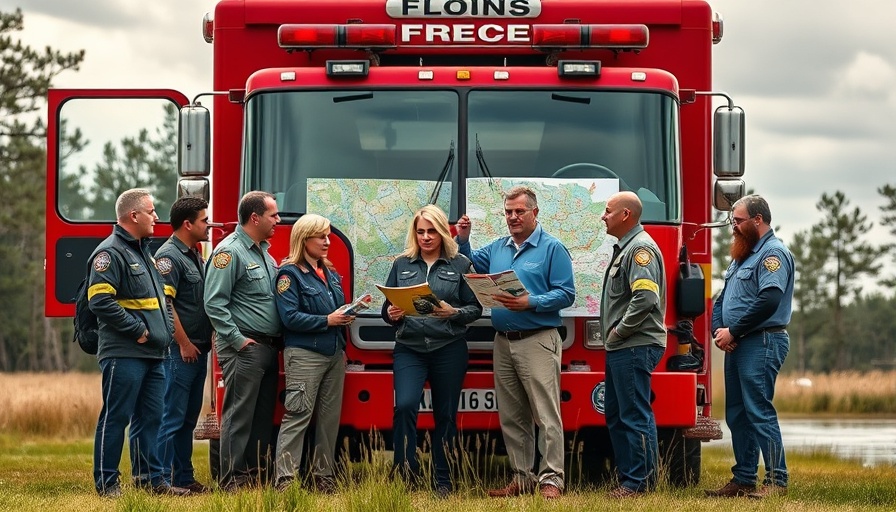
Trump's Visit: A Response to Flooding Crisis
Recently, former President Donald Trump toured areas in Central Texas devastated by severe flooding, gathering at vital sites impacted by natural disasters. His presence comes amidst rising scrutiny regarding local officials' response to these unprecedented weather events, raising important questions about disaster preparedness and response in a region prone to flooding.
Understanding the Impact of the Floods
This year's flooding has left communities grappling with loss and recovery. As Houston residents know well, flooding can lead to significant infrastructure damage, disrupt lives, and strain emergency resources. The emotional toll is substantial - families are displaced, homes are damaged, and the psychological impact can linger long after the waters recede. The recent floods serve as a reminder of the urgent need for effective disaster planning and execution.
Examining Response Protocol
While Trump's defense of local officials suggests a sense of reassurance, it also highlights the complexities of emergency management. Communities often expect clear and decisive actions from both local and federal leaders during crises. Analyzing the efficiency of response efforts is crucial—were residents adequately warned? Did emergency services respond swiftly and effectively? These questions resonate not just in Texas but across the country, where preparedness for natural disasters remains a pressing concern.
Community Voices: The Importance of Accountability
Greater Houston residents are no strangers to the effects of severe weather, and they have strong opinions about those in charge during these crises. Many locals are keenly aware of the conversations surrounding accountability and efficiency. As individuals share their experiences via public forums and local news channels such as Houston Public Media, it becomes essential to elevate these community voices, reflecting their resilience and need for transparent governance.
The Role of Communication in Disaster Response
Public communication is a vital element in any disaster plan. It is essential for local leaders to communicate effectively with residents. Regular public briefings, updates on conditions, and resources available for help can empower communities. Public radio stations like KUHF and PBS affiliates play an instrumental role in disseminating crucial information. Their coverage can guide residents during emergencies, offering support and clarity.
Looking Ahead: Future Preparedness Strategies
As we venture into hurricane season, now is the time to reflect on past lessons learned from previous flooding events and enhance preparedness strategies. Technological innovations in weather forecasting and community-based planning can foster a culture of readiness. Engaging local schools, organizations, and residents in disaster education will not only improve readiness but also strengthen community bonds.
Call to Action: Stay Informed, Stay Prepared
In the face of natural disasters, community resilience is our greatest asset. Stay informed by tuning into News 88.7 NPR Houston for updates on local events and emergency information. Your awareness and preparedness can make all the difference in the event of a crisis.
 Add Row
Add Row  Add
Add 



Write A Comment